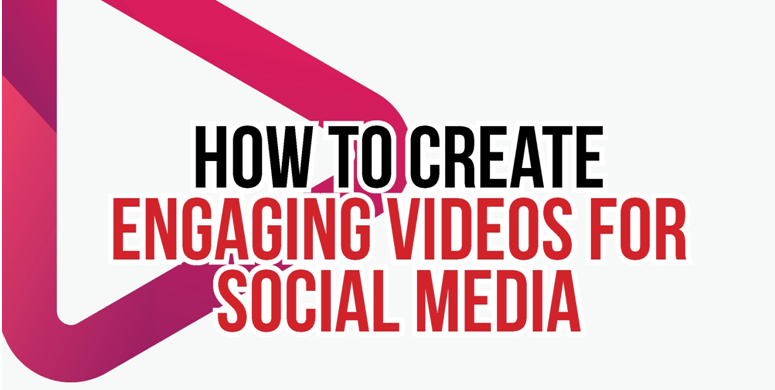
Video content will soon reign as king of content by 2019. Experts agree video is no longer an option as it will become 80% of internet traffic.
Even if you have a local offline business where you may not need to market on Instagram or Twitter, your business belongs on video regardless of where viewers may consume it. Imagine this – more than 3 million small businesses shared video content on Facebook within a one-month time frame. It’s no longer a matter of “if” but “when” the majority of online marketing will be driven by video.

By leaving your strategically created footprint on social media, you can effectively market to your audience 24-7 with compelling content. But with so many options, methods, and tools to create videos; are there any rules of thumb to give your videos a chance stand out?
We’ve put together a checklist of strategies to help you gain a clear understanding of what goes into creating great video content that is relative across all platforms. Our breakdown will help you share content that can capture your audiences’ attention in as little as 5 seconds and motivate viewers to take action.
The best thing is, you don’t need a degree in film making or digital editing, so without further ado; here are our most essential tips to help your video content shine.

1. Mission Statement
Does your video content contain a strong mission statement that allows your audience to quickly understand what your business is all about? Starting with a great mission statement can inspire youraudience to buy into who you are as an organization and will separate you from your competitors.
2. Focus on the Message
One of the most effective strategies to consider when creating a video is to focus on simplicity. By sticking to one message per video, and one call to action you can communicate your point more effectively and won’t clutter the message you’re trying to convey to your audience.
3. How-to Content
The appeal of “how-to content”stems from our infatuation of immediate information gratification. With the press of a button and a quick search on Google or YouTube.
How-to content dominates as over 100 million hours of practical tips and lessons were streamed on YouTube in 2016 – they are immensely popular regardless of the platform. This is an excellent opportunity to showcase the value your business can provide to your customers. Be cautious, however, of being too self promotional can turn your viewers off.
One great strategy is to offer useful content on a topic that relates to your business – you can drive higher traffic with content marketing than traditional forms of advertising.
Pro Tip: One popular method is to utilize explainer videos, which in most cases describes a problem your customer has and how your business can help them fix it. Sometimes, a quick and easy explanation is all a prospect need to clearly understand how your product or service can solve their problem.
4. Trending Videos
Staying relevant on social media can be a bit intimidating as trending hashtags and memes change almost daily. It is an all-consuming effort to stay on top of so much user-generated content. But if you can keep an eye on what your industry influencers are doing, you can take advantage of content and post topics that are highly engaging and people want to share.


5. Story Telling
In the age of personal connection through social media, audiences love a good story that they can and find relevance in through their own lives. Part of a great marketing strategy is to create compelling stories to captivate viewers on an emotional level to develop trust with your brand.
By going behind the scenes of your company, you share a story of who you are authentically.
Just like when a certain song comes on the radio and stirs up a vivid memory and the emotions that come along with it. There is something about powerful narratives that impact your audience on an emotional level. Our brains are more attuned to remembering information through emotional stories. Then when these emotions are experienced again later down the road, memories of your products and services will be triggered and that creates brand recognition.
6. Shareable Content
Being emotional creatures, we make decisions and do things based off how we feel. Whether content is shareable really depends on how it appeals to our emotional state versus our logical state.
In a study done in 2010 about viral content, making people excited, laugh, or be angry will draw a higher likelihood of having content be shared. It is not the specific feeling a person has, but how intense that feeling is that drives them to share content. Impact is everything.
So, ask yourself, does my content have the necessary ingredients to make someone want to share it?
7. Keep it Short and Precise
In our instantly gratified culture, the best video content can capture the attention of its viewers within the first 5 seconds. Otherwise, it’s likely your viewers will lose interest and move onto the next video.
Pro Tip: Be precise with the technical side of your video content; your video should be able to work without sound and automatically play in their newsfeed. Research has found that 85% of video’s in the Facebook feed is viewed without any audio. As well, viewer engagement increases tremendously if videos were to auto play versus being shared from a link.
Final Word
Traditional marketing that was once so effective has shifted into the conglomerate that is content marketing today. Video engagement will continue to increase through social media at a phenomenal pace. The million-dollar question is – what will you do to adapt to the changes in your marketing strategy?
